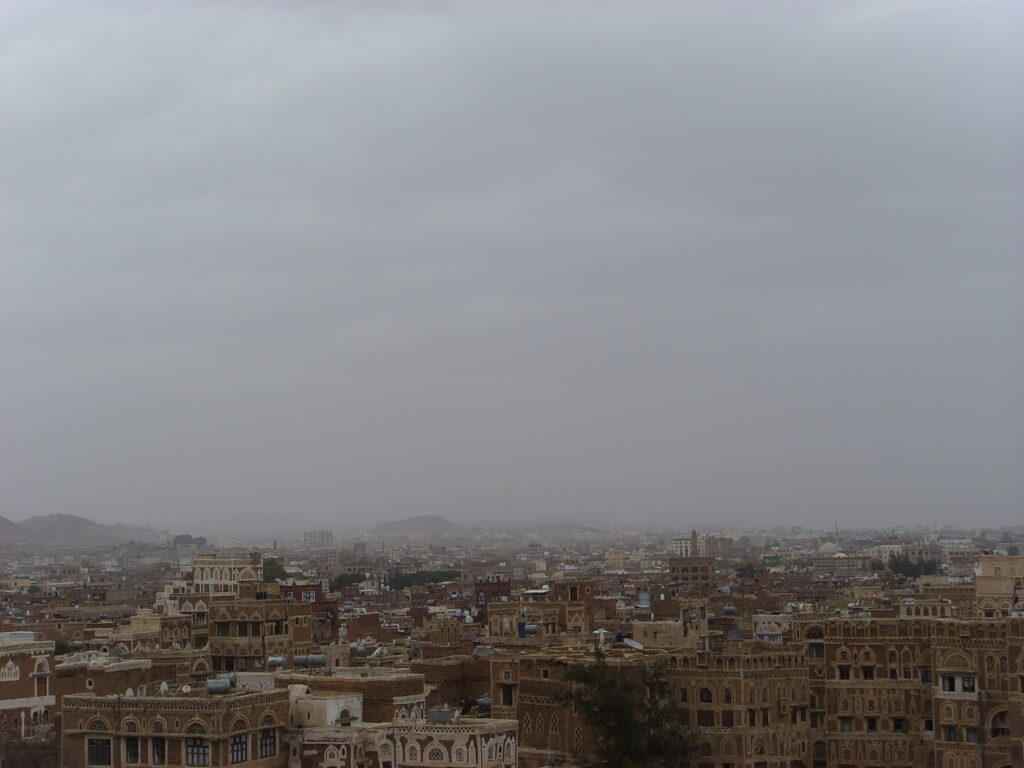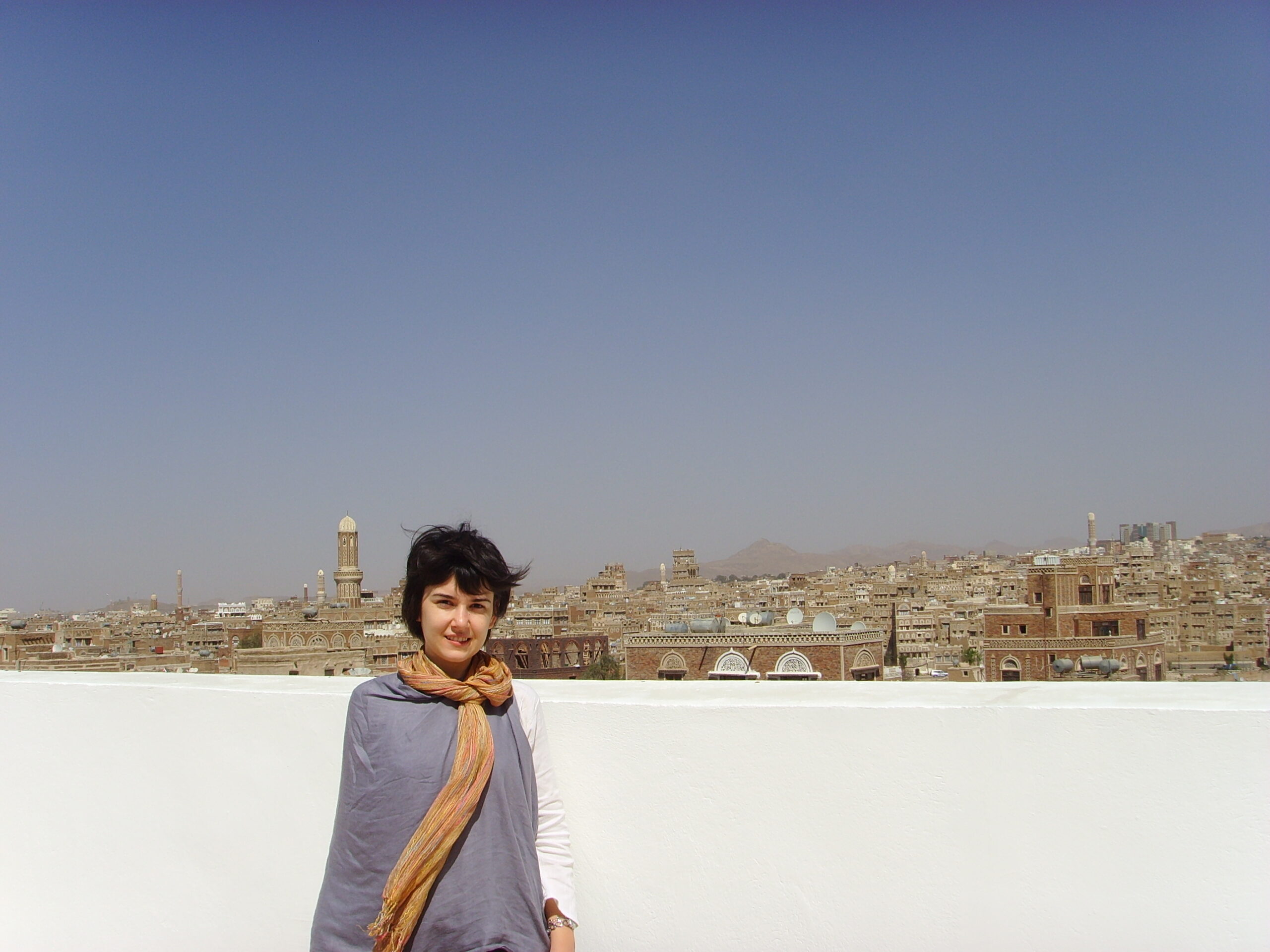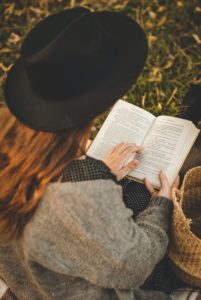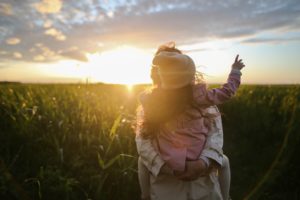In this poignant interview, Ana-Maria Dima reflects on her transformative experience as a United Nations Volunteer in Sana’a, Yemen, during the early days of the 2011 uprising. She shares her deep connection with the city’s ancient charm, the complexities of living through political unrest, and the personal growth that emerged from navigating a world filled with both beauty and danger. Through her storytelling, Ana-Maria offers invaluable insights into the profound impact such experiences have on identity, worldview, and creative expression, highlighting the power of writing and community support in processing trauma and enriching one’s life journey.
- Can you share the moment you first fell in love with Sana’a and what drew you to the city?
I first arrived in Sana’a in February 2011, just after the protests against the then President Saleh began in the city. I was there as a United Nations Volunteer, and it was the first time I had set foot in an Arab country. I was instantly drawn to the Old City of Sana’a, which is part of UNESCO World Heritage Site. The old desert-coloured houses seemed to me to be as old as time, and people dressed in traditional Yemeni clothing accompanied the “other worldly” atmosphere of the city. Sana’a is located in a beautiful valley and the sight of the mountains make it all the more beautiful. I felt that this was a space filled with an ancient wisdom, unbeknown to me and I felt compelled to explore it, although danger was lurking as well. - How did the experience of witnessing the conflict in Yemen impact your personal identity and worldview?
It was only once the protests became violent that I understood more profoundly the complexity of Yemeni society, as well as the danger posed to myself and all of us working and living in the city at the time. While reports of violence taking place in different parts of the world were not unknown to me, being caught in the middle of a violent environment changed my whole perception around the concepts of safety and the privileges we take for granted in Europe and other parts of the world. I remember being particularly struck by the stark contrast between the time of call to prayer one afternoon and the sound of gunshots in the background. The tension between the need to pray for life and the life that was being threatened or even ended by guns was remarkable to me. This place full of contradictions and idiosyncrasies was fascinating. I witnessed and understood how people continue to live their lives, albeit under the threat of violence, but in ways that somehow still cherish and respect life. The adrenaline and sense of urgency that came over me towards the end of my time in Sana’a, before I was evacuated because of the further deterioration of the security situation, made me appreciate how fragile life is and how the mundane activities of everyday life, are in fact not so mundane at all, how they become a celebration of life, a way to defy the surrounding environment at a time when violence was prevalent. A meal with friends in the dark, because the electricity was cut off, or a few moments of speaking to my family back home when the Internet was up and running, made me appreciate what we would ordinarily deem as “small things” much, much more. - What were some of the most profound challenges you faced while living through the violence in Yemen, and how did you cope with them?
The fear for my personal safety started to take over slowly but surely, when the army placed a tank on the street I lived in, I became much more aware of the danger lurking in the city. The most vivid memory I have is about the sound of shelling at night time, a sound that was amplified by the fact that Sana’a is in a valley. Living through countless sleepless nights took a toll on me, but I was lucky because I lived in the same building with other women UN volunteers and we spent a lot of time together, by candlelight, talking and trying to support each other and keep each other company. It was this support that helped me cope with the overall situation. - How did your time in Yemen change your perspective on life and your approach to storytelling and poetry?
My time in Yemen opened my eyes to a type of environment where beauty and danger coexist in a way that is unbeknown to most of us who live in peaceful societies. I was always perplexed by the pockets of kindness that existed in the city and how people exchanged ways of caring with each other. The generosity of my Yemeni colleagues, who would invite me to have lunch with them, while it was still possible to go and work from the office in the city, was a constant part of my time in Sana’a. I learned to appreciate different nuances and ways of communicating, and to understand the inherent contradictions of human nature. While threatened by violence, people around me continued to be very caring and thoughtful, even though their own families’ safety was under threat, they would check in on me and ask how I was doing. It was very important to me to grasp the nuances of a society where religion and history play a definitive role, all the while, not projecting my own beliefs and convictions too strongly onto that space. The fact that issues such as child marriage is still so prevalent in Yemen, was something that I very strongly believed needs to change, but I also became extremely aware of how such changes cannot happen overnight and so the way I now conceive such tensions is much more nuanced than before. - Can you elaborate on the sense of magic and connection you felt with the culture and people of Yemen?
I have always been drawn to places that remind me of a time out of time. Where modern life and ancient wisdom coexist. While many would be tempted to look at the backwardness of Sana’a as something negative, as living conditions for the people living in the city are far from what we would deem acceptable in Western modern day living, I found that despite the many challenges they faced, people were able to enjoy life and be part of a community where they shared in on both the joys and sorrows of living together. The old jewlers in Bab Al -Yemen, the old market in the old city were displaying designs that were ancient, the sellers of different fabrics, as well, the smell of spices, the bread bakers, the hustle and bustle of people negotiating better prices for what they were buying from the Old City, made it a special place to me. A place where the rules I was accustomed with did not apply, yet I had to try and decipher the rules of the land, while staying true to my own self. A space where my projections and assumptions were suspended, because they simply did not apply to how things were happening there. It felt like magic because it was new, and very, very different from anything I had known before. - What strategies did you find most helpful for re-composing yourself and integrating such a life-altering experience into your life story?
Writing was very important to me. While I was in Sana’a, recording my thoughts and feelings on paper, I used to write emails with updates to friends and families, keeping a sort of a travelogue. After I got evacuated, I turned to journalling in order to be able to process the experience better and to articulate the changes that happened inside of me. I always thought that should I ever have grandchildren, I would like to tell them the story of my time in Sana’a and make sure that they know that grandma was not a “dull” young lady. 🙂 I also believe that my time there further opened my eyes to the richness of the world we live in, in all its complexity. I think my life story is much richer now that it’s been punctuated with glimpses into a world that is little known and understood outside of its geography. - What advice would you give to someone who feels overwhelmed by a transformative experience or trauma?
I think that one of the best ways to deal with an overwhelming experience is to not let it bottle up inside of you. Whether it is journaling or talking to a friend, or even a therapist, depending on the gravity of the situation, helps to process the experience and put things into perspective. The timing can differ, some people are not ready to process such experiences right away, they might need some time to internally assimilate and work with their own thoughts and feelings about what happened, before they can share the experience with someone else. But being open and upfront about such experiences is important for others as well, and it can help create a sense of not being alone. - How can women use their past experiences, especially those that are challenging, to enrich their personal and professional lives?
Challenging experiences are transformative in a profound way. We can use them to grow both emotionally and mentally, and we mustn’t allow them to belittle us in any way. I think that one is only strengthened by challenges in the long run, even though they may sometimes leave indelible marks that we may not always be easily carrying around. I strongly believe in women helping each other grow and using their wisdom for each other’s benefit, therefore every challenge can be used as a learning experience for oneself and others. - In what ways do you think journaling or creative writing can help in processing and healing from difficult experiences?
I think that writing is a deeply therapeutic act. It helps us process, articulate and find our voice with regards to a myriad of topics, including more difficult experiences. It can feel like an exorcism almost, to throw onto paper our darkest fears or concerns, but once we get it out of our system, the experience is extremely liberating. We can write in whatever tone of voice we like, or use any kind of vocabulary, even foul at times, so that we truly provide our mental and emotional spaces with the necessary relief and comfort following such experiences. - What does it mean to you to treasure and incorporate significant life experiences into your personal narrative?
I have always sought to explore and understand the world around me, even when that has meant being exposed to more dangerous, or rather, off-the beaten-track types of experiences. I think that I have enriched my emotional space and my understanding of human nature, of the ways in which our spirit, though fragile, is resilient and able to encapsulate a whole plethora of forms of living. I would not be myself without the ability to shed some beliefs, acquire others and continuously expose myself and try to understand human beings beyond the cultural and socio-economic conditions that define their existence.







